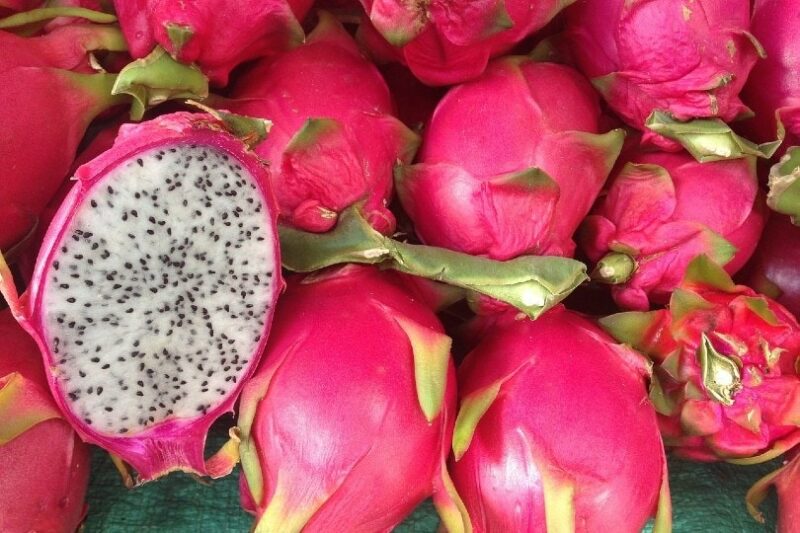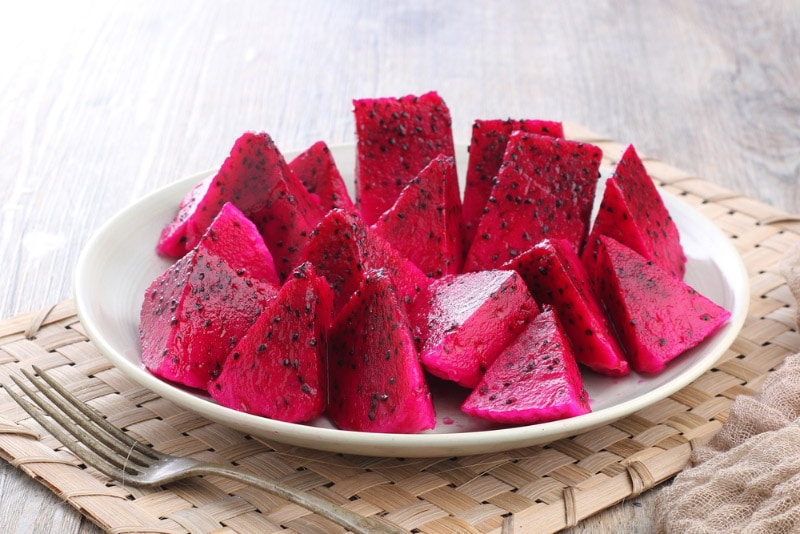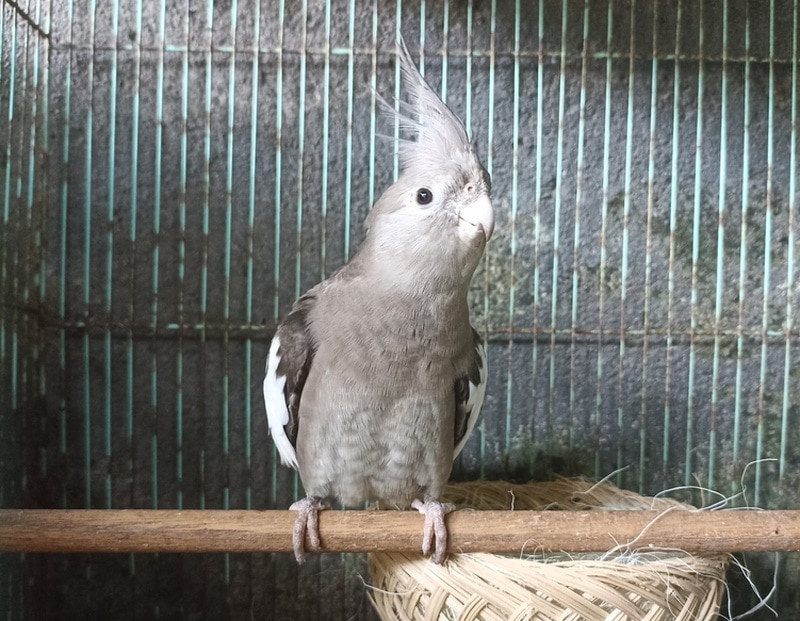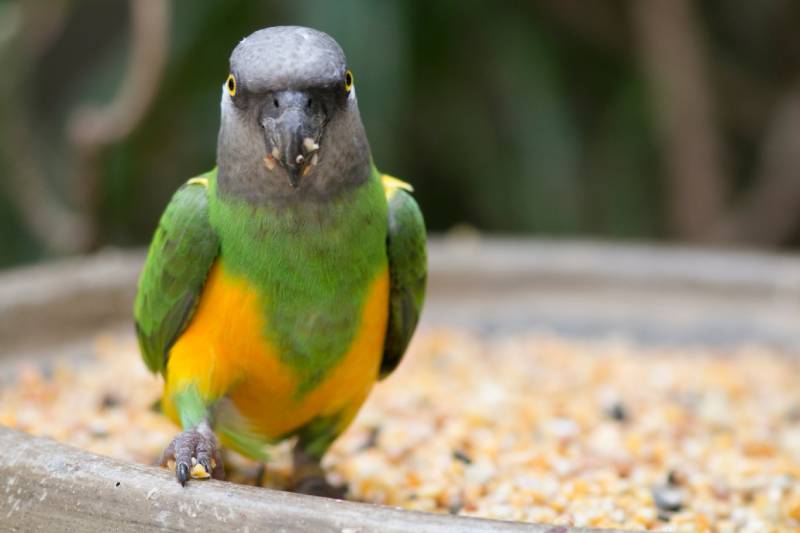Can Parrots Eat Dragon Fruit? Vet Reviewed Facts & FAQ
By Oliver Jones
Updated on

Parrots are incredible animals that can make equally incredible pets. Most are beautifully bright and colorful. They can range in size from the small parrotlet to the hefty macaw, and with hundreds of different species of parrot, there is likely a parrot out there for everybody’s tastes.
However, potential owners should not underestimate the amount of care that these feathered pets require. They can be messy, and noisy, and they need a lot of time out of their cage to ensure that they are physically and mentally fulfilled. And, if you have a talker, you may need to watch what you’re saying around your new pet.
You will also need to ensure that your parrot has a suitable diet that meets its nutritional requirements. Getting the diet right can take research, and it’s normal to wonder if some fruits can be eaten by parrots. In particular, dragon fruit can be eaten by parrots and is not only considered safe but also a healthy addition to their diet.
Can Parrots Eat Dragon Fruit?
Dragon fruit grows in Mexico and Central America, so parrots native to these regions would likely consume the fruit in their natural diet. As well as being healthy as part of a human’s diet, it is considered a healthy addition to a parrot’s diet, too. Again, it is the wide array of vitamins and minerals that make it such a healthy addition. However, while it is safe to feed this fruit to your feathered friend, you shouldn’t get carried away because it is high in sugar.

The Benefits
- Antioxidants: Antioxidants protect the body from oxidative damage. Fruits, and especially berries, contain high levels of antioxidants, so while your parrot should be getting plenty, there is generally no such thing as too many antioxidants.
- Fiber: Fiber helps many species with the passing of stools and digestion.
- Iron: Iron aids in the transport of oxygen around the body. Dragon fruit is high in this mineral making it a healthy addition to a bird’s diet.
- Vitamin C: Vitamin C is especially effective at preventing illness, which is as important in parrots as it is in humans.
Beware the High Sugar Content
While dragon fruits are healthy and nutritionally good for parrots, you need to be careful not to feed too much of this fruit. Like almost all fruit, dragon fruit is high in sugar and a diet that is high in sugar can potentially cause a parrot to put on too much weight, putting stress on the organs, muscles, and the heart.
Parrot Diet
There is no one-size-fits-all solution when it comes to parrot diet. With so many species, it is not surprising that there are also many different diets so while most are herbivores, existing on plants and plant matter, some are omnivores and will eat insects. The best diet for a captive parrot is one that closely matches what the bird would eat in the wild.
Like most animals, parrots need a combination of vitamins and minerals as well as protein, fiber, and other essential nutrients. They need vitamin A to keep tissues strong and healthy; vitamin B to help break down food; vitamin D to absorb calcium and other minerals; calcium itself for bone, egg, and beak health; and protein muscle and tissue development and maintenance.
Your parrot’s diet needs to be varied so that it gets all of these essential requirements.

The 5 Other Foods to Feed Your Parrot
Dragon fruit is a healthy treat for parrots, although you do need to ensure you don’t feed too much of it. Fortunately, there are plenty of foods you can give parrots that are healthy and safe. Below are five additional treats to give your parrot, including some that might surprise you.
1. Blueberries
Blueberries, and a lot of other types of berries, make healthy treats for parrots, especially thanks to the high levels of antioxidants they contain. Antioxidants perform a variety of roles and are especially useful for maintaining healthy bodily function.
2. Oranges
Oranges are high in vitamin C as well as vitamins A and B. You can cut them up before feeding them, but you can also feed them whole. Your parrot will enjoy the natural challenge of holding the orange and getting through the peel themselves. You can even feed freshly squeezed orange juice. However, feed oranges, and especially juice, in moderation as they are acidic and contain a lot of sugar.

3. Pasta
Pasta is packed full of carbohydrates, which provide energy for your pet parrot. It can be fed cooked, but you should avoid fancy processed pasta that contains additional ingredients and those that include extra salt.
4. Popcorn
Popcorn makes a great treat for hungry parrots. You can pop the corn first but don’t add salt, sugar, or other additives.
5. Nuts
Nuts are very healthy for parrots and form a natural part of their diets. Walnuts, especially, contain a wide variety of vitamins and minerals, including some that your parrot might be missing out on in the rest of their diet. It’s also fun and good exercise for your bird to get the stimulation of cracking open the shells.
Conclusion
Parrots need a varied diet to ensure they are getting all of the necessary nutrients. Although the exact diet will depend on the species of parrot you own, dragon fruits are considered healthy for all species. Feed in moderation, due to the sugar content, but add dragon fruit to the rotation of different fruits that you feed your feathered pet.
Featured Image Credit: brendawood33, Pixabay













